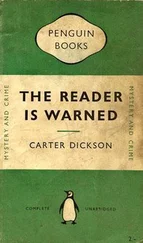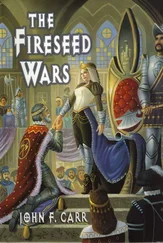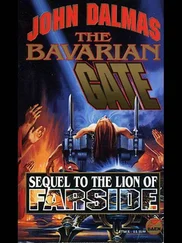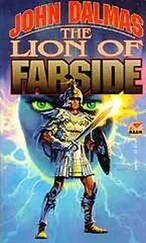John Dalmas - The Kalifs War
Здесь есть возможность читать онлайн «John Dalmas - The Kalifs War» весь текст электронной книги совершенно бесплатно (целиком полную версию без сокращений). В некоторых случаях можно слушать аудио, скачать через торрент в формате fb2 и присутствует краткое содержание. Жанр: Фэнтези, на английском языке. Описание произведения, (предисловие) а так же отзывы посетителей доступны на портале библиотеки ЛибКат.
- Название:The Kalifs War
- Автор:
- Жанр:
- Год:неизвестен
- ISBN:нет данных
- Рейтинг книги:5 / 5. Голосов: 1
-
Избранное:Добавить в избранное
- Отзывы:
-
Ваша оценка:
- 100
- 1
- 2
- 3
- 4
- 5
The Kalifs War: краткое содержание, описание и аннотация
Предлагаем к чтению аннотацию, описание, краткое содержание или предисловие (зависит от того, что написал сам автор книги «The Kalifs War»). Если вы не нашли необходимую информацию о книге — напишите в комментариях, мы постараемся отыскать её.
The Kalifs War — читать онлайн бесплатно полную книгу (весь текст) целиком
Ниже представлен текст книги, разбитый по страницам. Система сохранения места последней прочитанной страницы, позволяет с удобством читать онлайн бесплатно книгу «The Kalifs War», без необходимости каждый раз заново искать на чём Вы остановились. Поставьте закладку, и сможете в любой момент перейти на страницу, на которой закончили чтение.
Интервал:
Закладка:
He sighed, a sigh that might have been deliberate, for effect. "I will speak to the College about your request. About the prices allowed, not-the other. There is virtue in your argument-the virtue of fairness.
"But I do not perform miracles. Those belong to The Prophet, not to his successor."
Eighteen
Centrally the kalifal palace was a pentahedron, with attached, semi-disjunct cubes of different sizes, most with roof gardens. Just now the Kalif sat alone in his private roof garden, three stories above his apartment, with which it was connected by lift tube and stairs.
It was night. Ananporu was not a large city, as cities went in the empire; capitals never were. Its population was a little short of half a million, and large illuminated signs and lighting displays were not a part of the imperial culture. As a result, a considerable array of stars was visible.
Switching on a focused reading lamp, he'd turned his attention away from the view to the papers he held-including a report prepared for him several weeks earlier by Alb Tariil, on Tariil's objections to invading the Confederation. He'd studied it before, but hadn't discussed it yet in meeting; it hadn't been time. It still wasn't, but it felt like time to review it, to refresh his memory on what, exactly, Tariil had written, as distinct from what he himself had made of it.
The report was organized under two headings: (A) Arguments Against an Invasion; and (B) Arguments Against Proposing an Invasion to the Diet. Under (A), the exarch had written:
1. Such an invasion will be extremely expensive. The empire cannot afford it. I cannot think of a counter-argument.
2. Preparing such an invasion will cause severe currency inflation and material shortages. I cannot think of a counter-argument.
3. Preparing such an invasion will cause substantial shortages of skilled labor, and numerous peasants will end up being trained and put to non-peasant work. Then, when the preparations are completed, they will be required to return to peasant labor, which will probably result in civil disorders.
The Kalif skimmed over a lengthy write-up of the foreseen consequences of alternative three. Again Tariil had not given any counter-arguments. The Kalif did not doubt that the exarch would have written down any he'd recognized. Tariil had missed the obvious solution: shortages of skilled labor could be avoided by working skilled labor overtime as needed, and paying them premium wages for it. After decades of economic decline, the gentry would welcome it.
He read on.
4. The invasion might fail, with terrible costs in lives, money, and goods. There is no counterargument to this.
The Kalif grimaced. He had no real argument with that, beyond his feeling that defeat seemed unlikely, based on considerable, if admittedly incomplete information. He continued reading.
5. If you succeed in conquering the Confederation, you would then have to hold it or else give it up. To give it up after the great cost of conquering it would be unthinkable, while holding it would take a continuing and costly effort, at least until its people had embraced Karghanik. Counter-argument: Holding it would require extensive migration as well as many large garrisons. While this would require great shipbuilding costs, it would permit the transportation of those undesirables deemed suitable as colonists. (I suspect there would be large numbers of these.)
6. The Confederation has its own ways of thinking and doing things. Its human population numbers in the scores of billions, at least-far, far more than the colonists we might send. Even after they have embraced Karghanik, they will think and act more or less differently than we do. And these folkways will influence the people we send there, particularly as intermarriage proceeds. The colonies will become more and more different from ourselves, even in the face of continuing immigration. And at such a great distance, in a generation or two they will cease to recognize imperial authority. Counter-argument: They will be children of Kargh, and perhaps that should be enough for us. Even if we cease to rule them, we can be pleased to have brought Karghanik to scores of new worlds, and to a hundred billion or more people.
The Kalif mused on the concept of colonies on those distant planets, and of children born to colonists, children who would never see the sector, the worlds, their parents came from. Children to whom the eleven worlds would be only stories, stories they might not even be interested in at such a far remove.
He also mused on the Confederation's myriads embracing Karghanik. Of intermarriages, and populations that in a few generations would be unlike anything that now existed. A new people. Somehow it both troubled and excited him.
He went on to read Tariil's reasons for not proposing an invasion to the Diet.
1. The proposal is almost sure to fail in the Diet.
2. The failure of such a major and radical, one might say revolutionary proposal will make the kalifate, and by extension the College, look incompetent, and weaken them in the eyes of the nobility for a long time. It probably would not result directly in civil disturbances, but given conditions in parts of the empire-indeed on parts of Varatos itself-such a political conflict within the Diet can result indirectly in civil unrest.
The Kalif raised his eyes from the report and gazed thoughtfully across the nightbound city. In the distance, thunderheads pulsed with internal lightning and sent megavolt discharges flickering groundward like bright threads. For a minute or several minutes he half watched, half cogitated.
Civil unrest. What Tariil actually meant was insurrection; civil unrest was always present somewhere in the empire. Serious insurrection occurred only every century or two, growing mainly from conflicts between the two great estates-the Prelacy and the nobility. Or actually between the College and the House of Nobles, which invariably had the interest of the Greater Nobility in mind instead of the nobility in general.
Insurrection could drastically disrupt law, order, and the economy for a decade or longer, and no estate wanted it. But on occasion someone played too close to the brink. Insurrection was always a possibility, but it was hardly a present danger.
He continued reading.
3. If invasion is proposed to the Diet, nothing will get done this session except arguing. Some of the arguments may become so bitter as to seriously hamper deliberations on any subject for years to come. Counter-argument: At best, much that the Diet does is not very useful. A few years of it getting little done may not seriously harm the empire, so long as a budget of some kind gets passed.
The Kalif grinned anew. At first reading he'd been surprised at such an observation by Tariil-he still was-and wondered if the exarch found any humor in it.
He laid the report aside and picked up another. On Sixday he'd chair a session of the Diet; he made a point of chairing the last one of each week. He wouldn't drop a bomb on them yet, though; let them wonder. He'd settle for dropping one on his inner council tomorrow.
Nineteen
In council next morning, the Kalif waited till routine business had been completed before dropping his bomb. Alb Tariil had brought up the subject of invasion, but the Kalif had declined to discuss it, saying that he hadn't made up his own mind yet. That when he had, there would be time enough.
"There is other new business I need to bring up just now." He looked them over. Their interest was tepid; they were ready to leave, get to their other duties. "I'm not ready to make it public yet, but I thought you should know." He paused, teasing their attention. "You'll keep it confidential, of course." Another pause. "I plan to be married."
Читать дальшеИнтервал:
Закладка:
Похожие книги на «The Kalifs War»
Представляем Вашему вниманию похожие книги на «The Kalifs War» списком для выбора. Мы отобрали схожую по названию и смыслу литературу в надежде предоставить читателям больше вариантов отыскать новые, интересные, ещё непрочитанные произведения.
Обсуждение, отзывы о книге «The Kalifs War» и просто собственные мнения читателей. Оставьте ваши комментарии, напишите, что Вы думаете о произведении, его смысле или главных героях. Укажите что конкретно понравилось, а что нет, и почему Вы так считаете.










